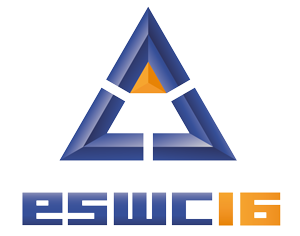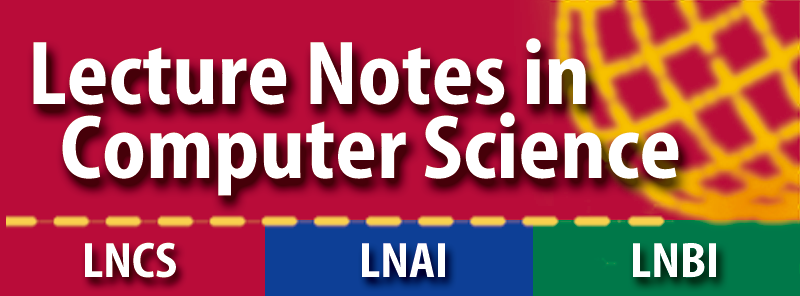PhD Symposium Call
The ESWC 2016 PhD Symposium is a forum for PhD students working in all areas of Semantic Web research to present their work, meet with peers and experienced researchers, obtain feedback and learn from each other’s experiences. It aims at helping future researchers in building up the skills and confidence required to conduct and promote their research, as well as providing them with an opportunity to attend one of the most important research conferences on the Semantic Web.
The ESWC PhD Symposium will give students the opportunity to:
- Learn by constructive criticism: Established researchers and PhD student advisors will provide constructive feedback to the submitted papers by mean of an open and non-adversarial review process.
- Learn from a mentor: Each selected student will be assigned a member of the programme committee with whom they will interact on the revision of the paper and the preparation of the presentation.
- Learn about research: Doing good research goes beyond writing a good paper; it includes perspectives on research as an endeavour and a career. Besides the presentations, coffee breaks and the PhD Symposium lunch will be used to exchange ideas and ask questions about all aspects of conducting a PhD and a research career in general.
- Learn by presenting: Accepted contributions will be presented in the PhD Symposium. All accepted contributions will also appear at the general poster session of ESWC. Students’ posters will be presented alongside posters and demonstrations of the main conference.
- Learn from a testimonial: an experienced researcher will give a testimonial as part of the PhD Symposium, describing his/her experience both in industry and academia. Ample time will be allocated for a Q&A.
Submissions will be considered from two different categories depending on the advancement into the PhD:
- Early Stage PhD: For students who may have identified the main research problem they want to address, the relevant literature, and are building their research methodology, but might not yet have obtained significant results, or only preliminary ones.
- Late Stage PhD: For students who have already defined their approach (even if incompletely) and obtained significant results (e.g., that might already have been published).
These categories do not affect the chances of being selected. They will however be taken into account by reviewers in their feedback, and in the length and format of the presentation. The organisers might decide to move a submission from one category to the other, if they think it is justified.
Submission Information
PhD students in all areas of Semantic Web research are invited to submit papers having 5 to 10 pages describing their PhD research, in the PDF format following the LNCS template. A list of topics is given below; further topics relevant to the symposium but not included in the list will also be considered. Submissions should be sent using the PhD Symposium submission system, through which participants will be also asked to decide on the category of their submission.
- Vocabularies, Schemas, Ontologies
- Reasoning
- Linked Open Data
- Social Web and Web Science
- Semantic Data Management, Big Data, Scalability
- Natural Language Processing and Information Retrieval using the Semantic Web
- Database, Information Retrieval, Natural Language Processing and Artificial Intelligence technologies for the Semantic Web
- Machine Learning for the Semantic Web
- Mobile Web, Sensors and Semantic Streams
- Services, APIs, Processes, and Cloud Computing
- Cognition and Semantic Web
- Human Computation and Crowdsourcing
- Search, Query, Integration, and Analysis
- Visualization
- Multimedia for the Semantic Web
Submissions should clearly indicate the category of the submission (Early Stage PhD or Late Stage PhD) and should adopt the following template of sections:
- Introduction/Motivation: Give a general introduction to the domain/area/topic and indication of its importance/impact in Semantic Web research or other domains.
- State of the Art: Describe existing work in the area, work focusing on the same/similar problems or that might be useful to realising your PhD.
- Problem Statement and Contributions: Based on motivation and state of the art, formulate the problem you intend to solve, and how you intend to contribute to Semantic Web research. This section should include a clear formulation of one (or very few) research hypothesis (what you will validate through your methodology, approach and evaluation) and the research questions that need to be answered. Late Stage PhD submissions should focus on contributions to such a hypothesis.
- Research Methodology and Approach: Describe the research methodology you will apply in your research, including the different steps from the formulation of your research questions to answering them. Also describe the approach you are taking (or you intend to take for Early Stage PhD submissions) to instantiate the research methodology, hence contributing to solve the problem described in Section 3 and confirm or reject your hypothesis. Discuss how this approach is innovative and novel, and how it is (might be) implemented.
- Preliminary or Intermediate Results: In a full conference paper, the approach would be fully described (in section 4) and fully evaluated (in section 6). Being at an intermediate stage, you should report here about the results achieved up to now in applying your approach that might not yet be sufficient for a full evaluation.
- Evaluation Plan: Describe your evaluation plan, which is the way you intend to validate your hypothesis, your results, and the value of your approach. For Early Stage PhD submissions, this might be only partially defined, and details might be omitted. For Late Stage PhD submissions, you might have partial evaluation results.
- Conclusions: Describe how your results will or might impact research or the world at large.
Additional submission requirements:
- All submissions must be single-author submissions. The PhD advisor(s) and other contributors should be included only in the Acknowledgements section.
- Authors of the accepted papers must register and present their work at the PhD Symposium.
- Authors will have neither achieved their Ph.D. degree nor officially submitted their thesis at the time of the PhD Symposium.
- PhD Symposium submissions are not regular research papers; the suggested proposal outline should be closely followed.
Accepted papers will be distributed to conference attendees and also published by Springer in the printed conference proceedings, as part of the Lecture Notes in Computer Science series.
Important dates
- Submission deadline: December 18, 2015
- Notification of acceptance: January 24, 2016
- Revised version to mentor: February 7, 2016
- Mentor’s feedback on paper: February 19, 2016
- Final version: March 7, 2016
- Draft presentation to mentor: May 10, 2016
- Mentor’s feedback on presentation: May 20, 2016
- PhD Symposium: May 30, 2016
All deadlines are Hawaii time.
PhD Symposium Chairs:
- Chiara Ghidini (Fondazione Bruno Kessler, Italy)
- Simone Paolo Ponzetto (University of Mannheim, Germany)
Program Committee:
Sören Auer - University of Bonn & Fraunhofer IAIS
Chris Biemann - TU Darmstadt
Stefano Borgo - ISTC-CNR
Elena Cabrio - INRIA
Oscar Corcho - Universidad Politécnica de Madrid
Claudia d'Amato - University of Bari
Chiara di Francescomarino - FBK-irst
Anna Lisa Gentile - University of Mannheim, Germany
Paul Groth - Elsevier Labs
Tudor Groza - The Garvan Institute of Medical Research
Pascal Hitzler - Wright State University
Hajira Jabeen - Universität Leipzig
Patrick Lambrix - Linköping University
Bernardo Magnini - FBK-irst
Pablo Mendes - IBM Research Almaden
Matteo Palmonari - University of Milan Bicocca
Heiko Paulheim - University of Mannheim
Sebastian Rudolph - Technische Universität Dresden
Stefan Schlobach - Vrije Universiteit Amsterdam
Guus Schreiber - Vrije Universiteit Amsterdam
Monika Solanki - University of Oxford
Heiner Stuckenschmidt - University of Mannheim
Vojtech Svatek - University of Economics, Prague
Danai Symeonidou - INRA
Valentina Tamma - University of Liverpool
Serena Villata - INRIA




fdc0.png?itok=frdrz8IM)




